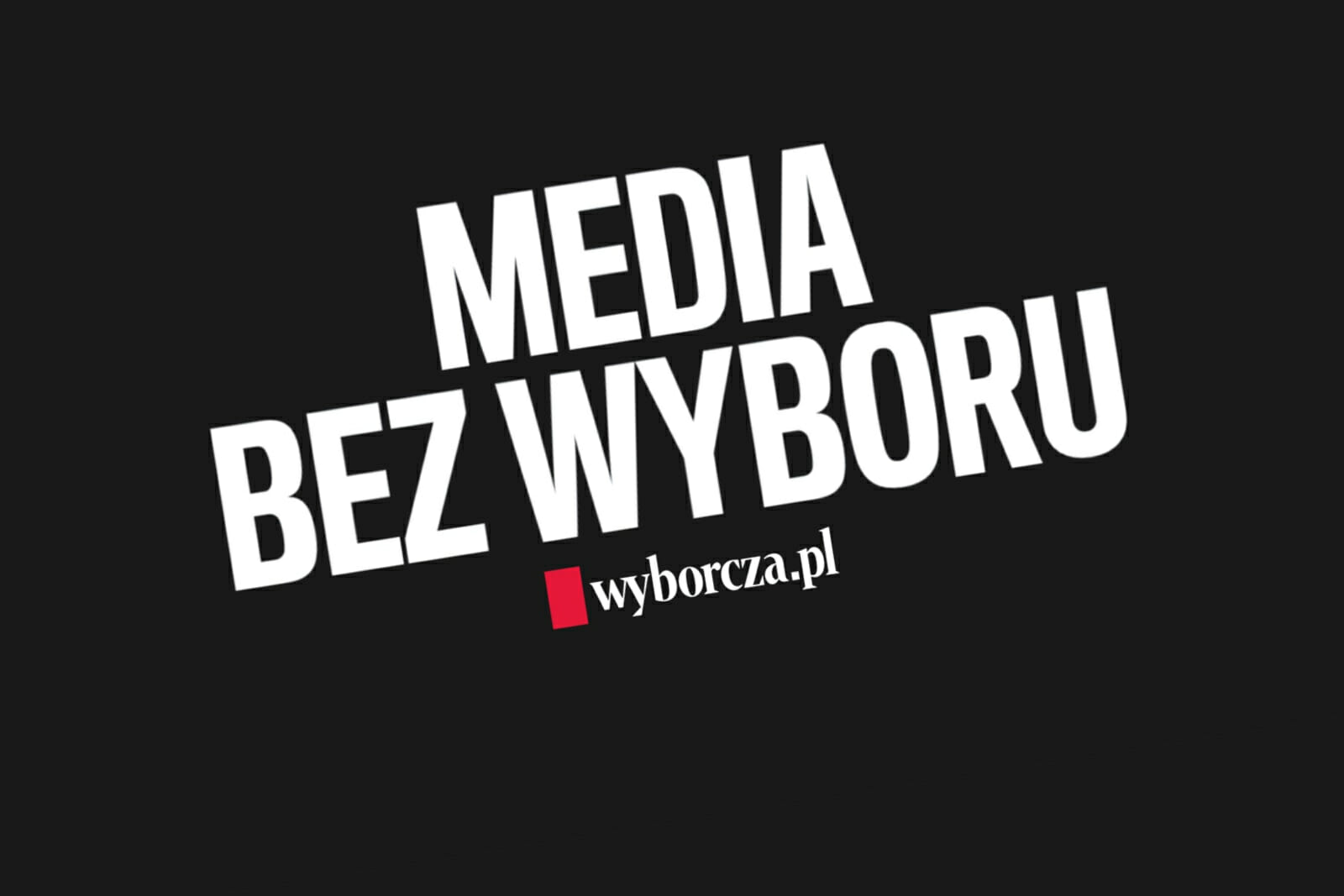
Poland’s Independent Media Goes Black to Protest Media Advertising Tax
On February 3, Poland’s ruling right-wing Law and Justice party (PiS) unveiled a media advertising tax, which would impact television and radio broadcasters, print outlets, and Internet media companies. One week later, the country’s independent media went offline, as they unilaterally suspended their news coverage in protest of the tax. As part of the Law and Justice proposal, the government plans to spend half the tax on healthcare, 15% on “monument protection,” and a third on cultural funding.
Mateusz Morawiecki, the country’s prime minister, argues this “solidarity fee” imposed by the government will be implemented on what it deems “unhealthy advertising.” The charge is in line with the European Union’s moves on a digital tax on tech giants, he argues. However, independent media companies disagree, claiming the tax would adversely cause their coverage to be compromised and curtailed, because of budgetary constraints due to lack of advertising revenues.
A column in Gazeta Wyborcza argues “the ad tax is a powerful blow to free media. Most of them rely on advertising revenue for their livelihood. The authorities will thus thwart costly investigations do away with laborious fact-checking and stifle criticism.”
Reporters Without Borders’ 2020 Press Freedom Index ranked Poland 62nd out of 180 countries, “its worst result yet,” says Karolina Zbytniewska, Euractiv’s chief editor. “Poland had received its highest result – 18th place – in 2015. At the end of that year, PiS came to power.”
Speaking to local media last week, Morawiecki noted that the levy is “nothing new” and was “something we agreed on in the European Union some time ago” as “a digital tax for part of the Internet.” As part of the tax proposal, however, it is estimated that tech giants would end up paying significantly less than independent media sites. By some estimates, millions less.
On Wednesday, commercial TV channels, radio stations, and web portals all went off the air in protest. “This is simply a tribute that will hit the Polish viewer, listener, reader, and Internet user, as well as Polish productions, culture, entertainment, sport, and the media,” read an open letter published instead of news on the websites of more than 40 media outlets, including newspapers, magazines, cinema chains, TV and radio stations, and record companies. [The tax] will weaken or even bankrupt some of the media operating in Poland, which will significantly limit society’s ability to choose the content that interests them.”
“The ruling [Law and Justice party] wants to do [away] with free, independent media, just like in Hungary,” says Mirosław Szczerba, the former spokesperson and adviser to former President Lech Walesa. “First, Orlen (the Polish oil refiner and gas retailer) bought all Polish newspapers and local media from the German company Passau, and now it wants to set up an advertising tax. The ruling Right took over the Constitutional Tribunal, then the Prosecutor’s Office and Courts, and now the free media. This is the way of a dictatorship,” Szczerba said.
“The money from these advertisements is to be used to support the state media. It’s clear that very strong international support for Polish independent media will be needed,” reminds Szczerba. “[Hungarian President Viktor] Orban made such a system in Hungary and liquidated free media there.”
When asked for a public statement, the U.S. Embassy in Warsaw pointed to a tweet sent out by Charges d’Affaires B. Bix Aliu, who wrote, “free media is a cornerstone of democracy. The United States will always defend the independence of the media.”
“We expect member states to ensure that their fiscal or other policies will not affect the duty of ensuring a free, independent, and diverse media ecosystem,” Christian Wigand, the European Commission spokesman concurred.
For Euractiv’s Karolina Zbytniewska, she contends that “the politicization of the public media in Poland is complete. State outlets act roughly entirely as the mouthpiece of the governing radically conservative coalition lead by PiS. Both politicians and public media continue to regularly verbally attack their critics in private outlets.” She sees a larger problem, as “the decreasing print sales are a part of the global trend, which is natural at the times of omnipresent Internet that comprises a free information source, free of charge, free of borders, and free of codes of conduct. Adding insult to injury, the resulting financial troubles and newspaper closures are complemented in Poland by a budgetary dimension of the already-mentioned politicization.”
“The new levy will not only hit the fragile independence of the Polish private publishers. It will hit just as well the Polish citizens and their freedom of choice and access to information,” Zbytniewska stresses.
Joanna Kędzierska, a Polish journalist, and former spokesperson of the Polish Institute of International Affairs (PISM), a leading think tank in Warsaw, believes the media blackout is “comical and delayed.”
“The real problem is that independent media haven’t been independent enough. They accepted PiS’s lies [by not] correcting them [on air],” says Kędzierska. “They [consistently] invite [these] PiS politicians, who spread lies, hate speech, and racism. In Poland, not one journalist has ever publicly said on-air that Kaczyński or another PiS member is spreading lies. In general, the level and condition you have in the media is a reflection of the condition of Polish society and its level of education.”
Having worked in Polish media for about nine years and close to four as a spokesperson, Kędzierska believes that “about 75% of journalists have poor education and poor general knowledge. They don’t read. They only read Twitter.”
Kędzierska, thus, sees this unilateral move by these independent media companies can be viewed as merely “payback.”
